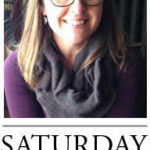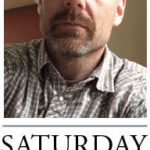Word Jerk
 I used to think I could be a writer. It was adorable.
I used to think I could be a writer. It was adorable.
I’m 45. From 20 until almost 40, I harbored delusional aspirations of someday publishing in prominent venues such as Spin, Sports Illustrated, Outside, and the New Yorker. In my 20s I neither enjoyed nor did well in a few full-time print and online journalism jobs. Throughout my 30s I taught writing (which I still do); I also spent a lot of time pitching Minnesota magazine and website pieces and a little time actually getting to write them; I took a short break from teaching in Duluth to see if I could hang with music journalists in Minneapolis (spoiler: nope); I made some stupid decisions I still cringe-blush about (I think I’ve now sent Alan Sparhawk five or six apology emails about a 2005 Minnesota Monthly piece about him I wrote and the magazine’s editors kind of ruined); I got fired from a few freelance jobs and submitted some work that sucked; I did some OK stuff and some pretty good stuff; I realized being able to arrange words well does not make me a writer and even if I ever become what I believe a writer is I’ll never refer to myself as one.
I grew up in a word incubator. Mom reads constantly, Dad taught English then worked as a library director, and they have big, agile vocabularies. They started reading to and conversing with me when I was in the womb. Before I was out of kindergarten, the words and images in The Magic Carousel, Cranberry Christmas and Cranberry Thanksgiving, I Wonder if Herbie’s Home Yet, Diggy Takes his Pick, Never Tease a Weasel, Old Witch and the Polka Dot Ribbon, I Wonder What’s Under, The Ice-Cream Cone Coot and other Rare Birds, and a bunch other Parents’ Magazine Press books, Arch books, Little Golden books, and Dr. Seuss books (especially I Had Trouble in Getting to Solla Solew) were forming my lifetime perspective at least as powerfully (and for just as much bad and good) as Sesame Street, Zoom, Captain Kangaroo, and the Electric Company were.
By first grade I was checking out books from the Northwest Elementary School library’s sixth-grade section and Dad was bringing bulging tote bags home from the Huntington (IN) Public Library a few times a week. I remember having no idea what to do with my crushing sadness after reading Sounder. In seventh grade (at John Adams Junior High in Rochester, MN) I read the Yearling (also crushed) and the Outsiders (still my favorite book, and the only one I’ve ever read in a single sitting). Those two books and a bunch of others I read in junior high and high school hum constantly just beneath my consciousness. They are much more present than books I read after getting to college. I was always reading as a kid. (Also: I still can’t do arithmetic at much above a fifth-grade level, so . . . .)
Part of why I was always reading is that long before I knew the words depression and anxiety but as I was becoming deeply familiar with those sensations, books and magazines and listening to music became my go-to escapes from constant existential torment. I’m grateful I found addictive escapes other than weed and booze. I also know the escapes I found have damaged me and my relationships with fellow human beings just as much as any other addiction would. Just as much, but perhaps more productively in some ways. I inhaled so many words so early that it makes sense I can’t remember a time when writing or speaking them felt uncomfortable, or when I haven’t been praised for what and how I write and speak.
Except most of that last sentence is total bullshit. I have often sucked at using words and known full well I was sucking and been told I suck. I don’t remember ever getting higher than a C+ on any college paper. I graduated with a 2.7 / 4.0 overall GPA and a 2.6 in my English B.A. courses, which no doubt inspires a huge sense of confidence in my credibility as a college writing instructor who may in a year or so have earned the right to be called professor (even by people who still won’t see me as worthy of that title).
While I wrote relatively well as a UMD Statesman sports reporter and columnist from 1991 until 1994, I couldn’t figure out how to produce more than two pages or say anything intelligent in the many lit-analysis essays I had to write for classes. I attribute part of that problem to my significant intellectual deficiencies, and part of it to dominant, unexamined assumptions within academia about the supposed value of “papers,” as they’re usually assigned, as tools for fostering or assessing real learning. “Mr. Godsey,” a professor once wryly said at my desk while returning graded work during a Brit lit class, “it’s a shame you can’t write as well for this class as you can for the school newspaper.” Ooooooohhhhh—burn! Guffaws. Hardy har har. Because my kooky inability to conform was obviously the problem.
I started reporting sports for the Mesabi Daily News in December 1993, a few months before graduating UMD for the first time. I was 22, petulant, unjustifiably arrogant, and clueless to the dues-paying opportunity I’d been given. I wanted to be a writer, not a reporter, and my contempt for the work my position required was obvious and deep. I couldn’t have cared less about rubbish like making sure we had the Virginia boys basketball score by deadline. I never felt entitled to information or driven to grab and publish it before someone else did. I wanted to write long, insightful, poetic features, not pointless game recaps full of interchangeable quotes and facts. The moment a veteran Associated Press reporter shoved me out of the way so he could badger a 15-year-old Mountain Iron-Buhl basketball player about some very important aspect of a 1994 state-tournament game at Williams Arena, I knew I didn’t want to become a journalist who believes, like many I’ve known seem to believe, in the self-serving story that says carrying a notebook justifies treating fellow human beings as fodder who should feel grateful for the attention.
I quit the job in July 1994 without having a next one, moved back to Duluth with all my stuff in an ‘89 Ford F150 I may miss till I die, had no idea what to do after a few weeks, moved back to Mom and Dad’s place in Rochester for a couple months, had no idea what to do from the moment I got there, and somehow got a public relations job I was wholly wrong for in Duluth. Participating in commerce might be the only pursuit I could care less about than reporting daily sports news, and I didn’t last in the PR job very long before I was back at UMD, in the English M.A. program. It was fall 1995. I still had no idea what to do. I still don’t.
During grad school I wrote a lot for classes and as much as I could for UMD’s sports information office and whoever else would pay me a little bit. I did some really nice work for the Twin Ports Bowler. I behaved quite badly when English Prof. Roger Lips had the temerity to fill my 20-page essay on Jon Hassler’s Staggerford with challenging comments that must have taken forever to write and ultimately helped me get the piece published in the North Dakota Quarterly. I didn’t thank him until after I’d been teaching for a while and realized how much time and effort he’d spent and how much of an asshole I had been in response. After graduating without a clue (again), I moved to the Twin Cities, couch-surfed till foolishly shacking up with a kind woman I was very mean to, worked a reporting and editing job on the website for WCCO TV and Radio for a few months before taking a pay cut to do the same job at KBJR in Duluth, and in just over a year after that, in fall 2000, took my first full-time UMD teaching job.
All of which is to show that by the time I was almost 30 I’d lucked into a lot of generous chances for building credible writing contacts, experiences, and examples. And none of which shows, because I don’t have the writing chops to illustrate absence, how little initiative I took or work I did to become what I thought I wanted to be. I changed some of that in my 30s.
I wrote a lot of feature articles, music reviews, and random other stuff for the Ripsaw News in the early 2000s, partially in a vain attempt to assuage self-castigation about time I’d wasted in my 20s, and partially with the intention of building a portfolio I could use to bill myself for future jobs beyond Duluth. Then I started writing regularly for mnartists.org and (as my previous patterns of thought and behavior might suggest) completely missed how huge of an opportunity it was. In 2004 my wife and I moved to Minneapolis for her job. I put together an OK writing portfolio, resumé, and cover letter, sent it to 15 or 20 Twin Cities publications, sat back and waited for the deluge of work my brilliant clips were sure to command, and learned, with gradual, sickening clarity, that while I could probably become decent at the writing part of being a freelance magazine and website writer, I have no interest in or talent for the non-writing aspects of it that require entrepreneurial foresight and drive. I know how to work very hard. I don’t want or know how to do that form of very hard work. Turns out I wanted to be the type of freelance writer who makes a sustainable salary without having to compromise or scrap. I might have been able to get that good, but the magical thinking required for believing I could reach that place as quickly as I thought it would happen is so embarrassing I’m blushing and feeling sick to my stomach while typing about it. I felt entitled to a lot I hadn’t earned.
I kept trying for a few more years, even after knowing I’ll most likely never be interested in writing work that forces me to adjust what I want to say or how I want to say it. If I publish something that’s stupid or wrong or hurtful, I want to know and be able to say the decisions behind it were mine. Adam Guggemos let me do exactly that for a couple years in a Transistor column called “Beginner’s Mind.” That work and this little piece you’re reading prove I should ask for more editing and I’m often not that good at writing. I write for Perfect Duluth Day because Paul Lundgren is one of like three people whose feedback I choose to accept without feeling superior and getting snippy in response. He and I don’t always agree, but when we disagree I’m usually wrong, and I never feel like he’s trying to coerce me or my words into saying something I find ethically, factually, or aesthetically objectionable. Among editors at Twin Cities publications I’ve written for, only one person at the Rake and a few at City Pages left me feeling the same way.
A Duluth News Tribune editor once offered me a position writing arts and entertainment news then rescinded the offer a month later (for wise reasons, only partially related to my writing limitations, that helped the paper and me dodge each other as bullets). A piece of copy I wrote as part of what could have been a long-term Essentia Health web-content gig was so deeply bad in some way that the person who hired then fired me couldn’t even find words, during a phone conversation, to describe how intensely my effort had disappointed and, it seemed, actually offended them. Editors at Minnesota Monthly, Mpls. St. Paul Magazine, and the Rake told me they thought I was talking down to them in response to their comments on my drafts. I totally was. Only folks at the Rake kept responding to my e-mail pitches after those exchanges. I still believe I was right and they were wrong regarding 90 percent of what they asked or forced me to change. I still believe they just didn’t get it. They’re also much more skilled and successful as writers (of a sort I’m not interested in being) and editors than I’ll ever be.
I can smith the shit out of some words if given the opportunity. I have fun doing it. I spend foolish amounts of time on overwrought Facebook posts that aren’t nearly as clever or insightful as I believe they are. The first two chapters of my Ed.D. dissertation are due by late August. I hope to have an academic job that requires publishing. I won’t stop writing any time soon.
I also no longer want to be a writer, partially because I don’t think I can, and partially because I totally think I can, but the type of writer I think I can be would never go around saying that’s what they are.
Recommended Links:
Leave a Comment
Only registered members can post a comment , Login / Register Here














8 Comments
Ramos
about 9 years agoDavid Beard
about 9 years agoHerzog
about 9 years agoHerzog
about 9 years agoChris Godsey
about 9 years agomarko3133
about 9 years agoRobert Lillegard
about 9 years agoFranceneStarr
about 9 years ago